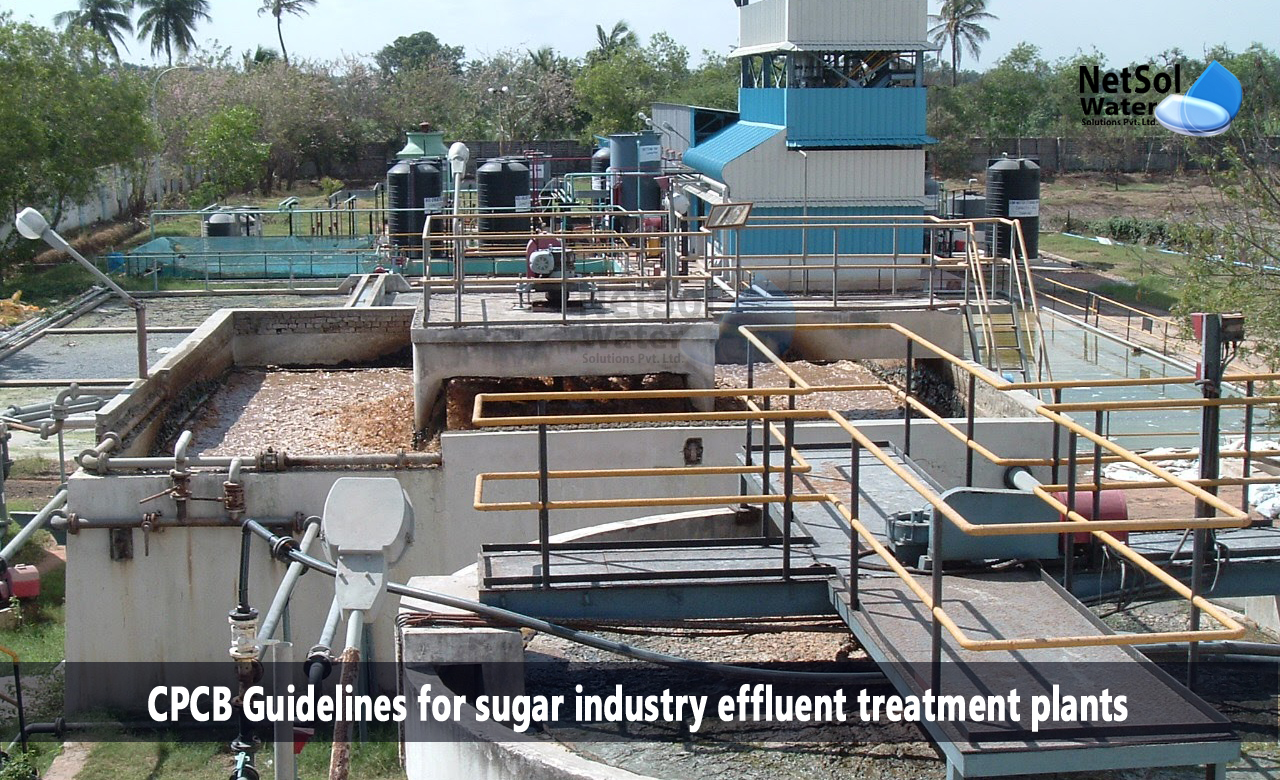The sugar business in India generates around 1,000 gallons of effluent. That is why effluent treatment plants for sugar mills are required, because dumping wastewater from the sugar business into nature, without treatment wastes a considerable amount of water and causes pollution in both aquatic and terrestrial ecosystems.
The sugar sector is important to India's economic prosperity. Nonetheless, the effluent generated by these enterprises is heavily contaminated. It is one among India's most polluting industries. There are certain effluent discharges prescribed by CPCB for sugar industries ETPs.
Sugar industry effluent characteristics
Effluent has a brown color, low pH, high temperature, high BOD, high COD, odour problem, total solids, and a high percentage of dissolved organic and inorganic waste. As a result, untreated wastewater can endanger the ecology.
The industry generates approximately 1,000 litres of effluent for every tonne of sugar cane crushed. Without treatment, wastewater pollutes both the aquatic and terrestrial environments.
Parameters of Raw effluent
General characteristics of raw effluent water produced in the sugar industry:
1. pH – 4.0. to 6.5
2. COD (chemical oxygen demand) - 2000 to 3000 mg/lt.
3. BOD (Biological oxygen demand) - 1000 to 1200 mg/lt.
4. TSS (total suspended solids) - 500 to 600 mg/lt.
5. TDS (Total Dissolved Solids) - 5000 to 6000 mg/lt.
6. Oil and grease- 10 to 50 mg/lt.
What is ETP in sugar industry?
Effluent Treatment Plant in Sugar Industry/mills (ETP plant for the sugar industry) is a plant that treats the wastewater/effluent, produced by sugar mills. Its primary function is to treat and manage industrial liquid waste, in accordance with pollution control board standards, either for safe disposal into Mother Nature or for reusing.
What are the CPCB Guidelines for sugar industry ETP?
Industries are required to install effluent treatment plants (ETPs) in order to comply with the effluent discharge standards, notified under the Environment (Protection) Act, 1986 and the Rules framed thereunder, as well as to meet the consent conditions granted by State Pollution Control Boards (SPCBs) / Pollution Control Committees (PCCs).
Standard parameters of treated effluent water
|
S.No |
Parameters |
Standard norms |
Inland surface water |
Land for irrigation |
|
1 |
pH |
6.5 to 8.5 |
5.5 to 9.0 |
5.5 to 9.0 |
|
2 |
Total solids |
< 2000 |
– – – |
– – – |
|
3 |
Suspended solids |
< 300 |
< 100 |
< 200 |
|
4 |
Chemical oxygen demand (COD) |
< 250 |
< 250 |
– – – |
|
5 |
Biological oxygen demand (BOD) |
< 100 |
< 30 |
< 100 |
|
6 |
Oil &grease |
< 10 |
< 10 |
< 10 |
Caution Board at ETP
At the ETP locations, proper cautionary signage and safety practices should be presented.
For the benefit of maintenance personnel and the general public, "Danger" Sign Boards should be put at the ETP position. Additionally, "water not appropriate for drinking" should be emphasized at taps dispensing Effluent water.
Effluent treatment plant manufacturers for sugar industries
Netsol Water is one of India's leading manufacturers of effluent treatment units for the sugar sector. Sugar-processing wastewater includes a high concentration of contaminants. As a result, it is critical to treat effluent from sugar mills in order to dispose of it safely and securely into water bodies, or reuse it in accordance with government regulations.
Netsol Water is Greater Noida-based leading water & wastewater treatment plant manufacturer. We are industry's most demanding company based on client review and work quality. We are known as best commercial RO plant manufacturers, industrial RO plant manufacturer, sewage treatment plant manufacturer, Water Softener Plant Manufacturers and effluent treatment plant manufacturers. Apart from this 24x7 customer support is our USP. Call on +91-9650608473, or write us at enquiry@netsolwater.com for any support, inquiry or product-purchase related query.



